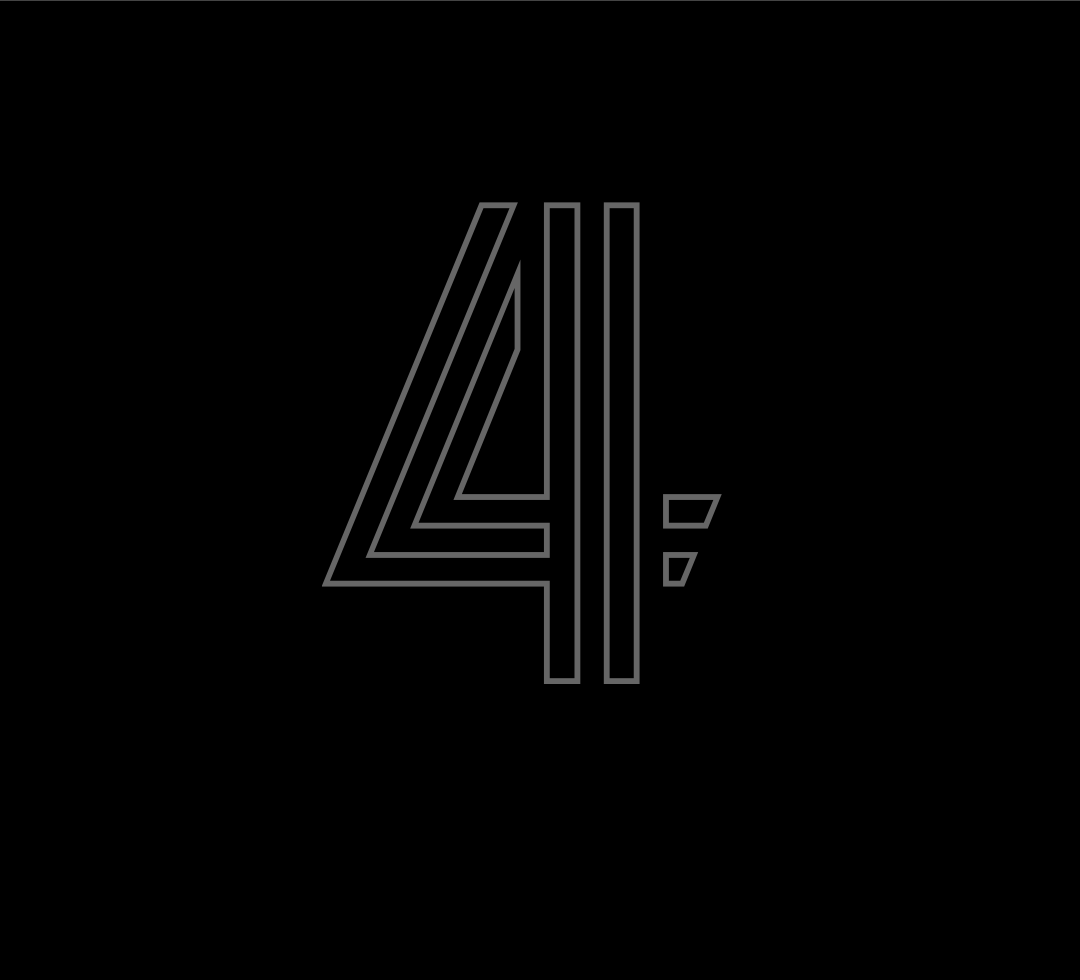10 Top Tips
Greenwashing – Cutting through the noise.
–
Hi, Mark here from Superfried design. If you have been directed here, hopefully you are seeking tips on how to communicate with authority, authenticity + distance yourself from the damaging trend of greenwashing.
This is not an easy task, so I hope these tips are useful. However, they are not a complete solution, so if your organisation would benefit from additional support – click to book a call.

01 Keep it simple
The problems we are facing globally as a species are daunting and complex. As experts within our respective fields we sometimes forget that our audience does not have the same experience or educational background. This is particularly common in the environment sector, since much of the background behind our actions is of a scientific nature. So with every message, ask yourself 'would my gran understand this?' With this in mind, use simple everyday language and avoid industry acronyms and terminology.
A little bit of testing can also be very beneficial. I am not suggesting you hire a market research company for every piece of messaging, but it can be valuable to reach out amongst friends, family and peers. Within just our immediate contacts the wide range of different interpretations can be startling. This is particularly useful when shared with those unfamiliar or uninterested in the topic. If you are able to intrigue this audience, you are heading in the right direction.
In addition to simple wording, through design, complex messages can often be conveyed more effectively via a graphic solution. For the Jane Goodall institute use of illustration and animation were employed by Superfried to dramatic effect to raise awareness of the devastating impact of deforestation on global ape populations. Via the use of intricate line work it was possible to convey the five endangered apes – Gorillas, Chimpanzees, Orangutans, Gibbons and Bonobos – within the smoke emanating from a forest fire.
Graphic design was also used effectively by Superfried for Dsposal. Their existing digital hub was connecting waste producers to licensed waste companies. They noticed large volumes of traffic from domestic users and decided it would be beneficial to create a separate version specifically tailored to their requirements – Your Dsposal. It was essential that the brand identity was distinct and clearly conveyed the service provided. The most recognised symbol for domestic life is probably a house and for waste, the classic bin icon. Through testing and experimentation it was possible to combine the two for the logo marque, with the bin representing the doorway to the home.
References
-
Jane Goodall Institute
Jane Goodall Institute | DiCaprio Foundation
Case study
-
Your Dsposal
Your Dsposal
Case study

02 Prioritise your communications
It is also important to be succinct. We are bombarded with information every second of the day, so attention spans quickly diminish. When writing your communications, prioritise. What is the single most important message for the reader to take away. Then as a nice to have, select a second + third – anymore than this is highly ambitious : )
When developing a brand identity, this level of prioritisation is key. When focused to a single message a strong brand marque can be very powerful. But this can be very challenging. It is natural to want to say more, but in doing so we can often say less. But sometimes things just click.
While working with the Shark Conservation Fund via the Leonardo DiCaprio Foundation, the client requested that the brand marque simultaneously represent sharks, rays and their natural habitat, since they would protecting all three. Normally this would be asking too much from one logo. However, leveraging the similarity in form of waves and fins, combined with some negative space trickery – their bold request was granted.
References
-
Shark Conservation Fund
Shark Conservation Fund
Case study

03 Stay positive
We know we need to change the way we live. But if we are honest, we would rather we didn't have to. Ultimately we all want our lives to be simpler, not more complex. Consequently, if we want our audience to take our messages on board, telling them there is no future and that it is all their fault is likely to fail. Instead, rather than fear and examples of failure, we should focus on examples of success. Where collaboration has led to real change.
Understandably people are often daunted by the scale of the problem. This leads to the common idea that the action of one will make no difference. The result – inaction. However, there are countless examples through history that demonstrate the small, collective actions of many can change the world. If this worked before, it can work again.
We are bombarded daily with negative news. Consequently, to cut through communicate reasons to be optimistic for the future. As consumers the guilt trip is perpetual, but often without any advice or solutions. Superfried client Ethy decided to address this. Via their free app consumers can now locate ethical retail outlets throughout the UK. Ethy have established a stringent verification process for all participants based on the 17 United Nation Sustainability Goals.
Another Superfried client, Dsposal, also adopted a upbeat route. Dsposal noticed that is was difficult for both the general public and commercial organisations to locate registered companies to responsibly dispose of their waste.
Consequently they developed online hubs for commercial and domestic use – Dsposal and Your Dsposal – to connect their users to reputable firms. To communicate this struggle, fun, vibrant illustrations of a complex, surreal world were created to demonstrate how they can help the user to navigate their way through to the right partners.
References
-
Ethy – Sustainable Shopping
Ethy
Sustainable shopping
-
United Nations – The 17 Goals
United Nations
17 Sustainability Goals
-
Dsposal
Dsposal
Case study
-
Your Dsposal
Your Dsposal
Case study
-

04 Be authentic
In a world of social media, there is no where to hide. Consequently, it is now more essential than ever to be honest. The damage can be brutal if you are found out. When stating your environmental intentions, ensure they will be measurable. When doing so, also factor in the behaviour of your partners and suppliers. Although often unfair, guilt by association is now more difficult to redress with the powerful, binary voice of social media.
Make sure you explain the intention of your actions. If the reasons are not solely for the environment – profitability / benefits to the local community / education / industry growth etc – it is important to say so – the honesty will be appreciated and your actions perceived more plausible. Misinformation is rife, so if you are not completely explicit, observers are unlikely to give you the benefit of the doubt. It is more likely that they will draw their own conclusions and fill in the gaps.
Sarah Lewis founder of non-profit Thrive Conservation is a perfect example of authenticity. In Indonesia small environmental organisations were struggling to raise funding when competing against the large, established global non-profits. She was frustrated by the significant conservation gaps across the archipelago generally overlooked due to their remote locations, severe shortage of capacity and funding. It also became apparent that the capacity issues were not due to a lack of interest – many people were keen to work in conservation, but there were simply no roles available.
So Sarah embarked on a more ambitious strategy. By focusing on a long term goal to educate and establish long-term employment opportunities within challenging front-line projects. As a small organisation with bold ambitions they were struggling to be taken seriously by large funding groups. Sarah contacted Superfried as she felt a professional brand identity and positioning would help to reassure that donations would be spent wisely and that their strategy was well considered. It worked which enabled Thrive to attract funding, grow and tackle the issues that had been consistently neglected. Since completion of the identity, Thrive have grown and recruited X new members to the team.
References
-
Thrive Conservation
Thrive Conservation
Case study

05 Walk the talk
A 2022 survey conducted by Edie found that 7 in 10 Brits don’t believe environmental claims by businesses are credible. Consequently, when making your ambitions known, you must see them through. Not only must they be measurable, they must have a deadline. But stating a deadline and forgetting about it is not enough. Even if you fail to meet your target, review the progress, explain what went wrong and set a new realistic target. Failing is easy – everyone does it – the hard part is owning up, learning from it and going again.
Registering with creditable third parties can also be beneficial to verify your environmental intent. Although challenging, it might be worth considering whether your organisation is suitable for B Corp registration. For smaller companies other options such as 1% for the Planet could be more suitable.
Internal reviews can often be perceived as a burden and inefficient use of time. But in fact it could be argued that the opposite is true. By reviewing progress on a previous promise it helps to keep the organisation on track. As a secondary benefit, the review process also creates a new reason to communicate with existing and potential clients. Transparency is key. It is very difficult for an organisation to reduce its carbon foot print, but to the outside world it may not be obvious why and be perceived as excuses or inaction. Take this opportunity to educate and explain the barriers you are facing.
To gain additional engagement it can be beneficial to target a relevant annual event. For example when Superfried worked with the DiCaprio Foundation to raise awareness for the conservation of sea life, World Ocean Day provided the obvious launch date. This would enable the organisation to update their audience on an annual basis, creating credibility, trust and a regular opportunity to raise greater awareness and donations.
However, a word of caution. Although associating your actions with an annual event can be powerful, it is a commitment. Your customers and followers will subsequently expect a similar response every year. If you are not able to maintain this, it could be damaging and might be wise to avoid this strategy.
Refernces
-
Edie – UK consumer survey
Edie
UK consumer survey
-
B Corp
B Corp
Third party accreditation
-
1% for the Planet
1% for the Planet
Effective corporate donations
-
Leonardo DiCaprio Foundation
DiCaprio Foundation – World Ocean Day
Case study

06 Do your homework
Google has now democratised information. It is therefore important to back-up everything you say with evidence. Sweeping statements + opinions will no longer be accepted as fact. Although scientific research is often completely dismissed, the inclusion of this evidence demonstrates discipline and attention to detail. This will help to build credibility and respect for your brand and organisation.
"I need to keep it simple and back up my statements with science – isn't that a contradiction?"
This is a challenge where technology can help. It is important to back-up your argument, but there is a time and place to read through complex scientific data. Therefore, when writing your succinct copy, an underlined link to the research paper tells the reader the evidence is available, without affecting the flow or stealing their time. They can choose to delve deeper into the detail later when time permits, or opt out if the highlights were sufficient.
Scepticism and mixed view points led one client to go a step further – instead of researching the data, they found their own data. Philanthropic non-profit One Earth. They had commissioned 17 leading experts to develop an actionable model to maintain temperature rise to 1.5˚C. The highly respected research provided a strong, sector leading USP. To effectively convey the complex results the model was broken down into three separate, actionable stages.
References
-
One Earth
One Earth
Case study

07 Research to standout
In the modern economy we are now competing with the world. This provides incredible opportunities to work with people and organisations that was once incomprehensible. However, there is a knock-on effect. It is no also harder to standout.
This is where research is key and with access to Google, now there is no excuse. Researching our competitors is essential to learn from them and avoid inadvertently replicating their messages and actions. This is easily done when offering the same services and speaking the same sector language. This challenges raised in the scenario increase as the niche within which you are working becomes more focused.
This situation occurred while working with the Wildlife Conservation Network [WCN] to develop the brand identity for their Rhino Recovery Fund. As you might expect the client was keen for the brand marque to feature a Rhino. During the research phase it became apparent that there are a lot of rhino logos out there! Most use a realistic interpretation, so the obvious solution was to create a stylised impression.
This was more difficult than expected. The rhino is a rather strange looking beast so experimental styles often failed to be recognisable or looked too aggressive. Perserverence led to a geometric approach – creating a passive feel, distinction and sufficient resemblance.
Now for a controversial reference – Apple. It could be argued that they are awful – creating huge volumes of resource hungry devices which they encourage customers to replace after a short time period. Alternatively, it could be argued that they are pushing the boundries with new techniques to produce devices in a more efficient, have a plan in place to achieve carbon neutrality and that if the market leaders take this stance it forces the rest of the market to follow suit. Whether you feel they are potential world champion greenwasher contenders, we can still learn from their messaging.
In their latest promotion on their environmental progress they use an innovative approach. The scene imagines the Apple employees, including their CEO, rushing around preparing for an important board meeting. When the esteemed guest arrives, it is none other than Mother nature herself. She proceeds to drill them across multiple categories for a progress update, which they respond to with minor blunders in a humorous way. Whether you like the ad or not, it is a great example of finding a different way to convey the same message.
References
-
Rhino Recovery Fund
Rhino Recovery Fund
Case study
-
Apple – Mother Nature
Apple
Mother Nature
-
Was the Apple ad effective?
Inc.Com
Was the Apple ad effective?

08 Use of photography
There is a lot to be said for the classic phrase – a picture is worth a thousand words. In addition to graphic solutions, photography can be a valuable tool. Never before has this medium been more accessible or affordable. Ideally, if budget is available, I would always recommend hiring a photogrpaher to capture shots, tailored and bespoke to your brand message. If this is not an option stock imagery or even free resources such as Unsplash – please credit the photographers – are available.
While branding a new fund – Leuser Ecosystem Action Fund [LEAF] – for the Sumatran Orangutan Society, there was no budget for photography. The project was focused on four separate species specific to that area – Elephants, Rhinos, Tigers and Orangutans. As mentioned above, I wanted to stay positive – avoid guilt laced shots of devastation. But it was also important that the gravitas of the situation was maintained. Since the species were so eclectic trying to use a single shot would be ineffective. I decided to find a separate image for each.
Although separate it was important that the shots had a similar, consistent style. It was important that the images drew the viewer in and created a connection. Via Unsplash, striking portrait shots of each species were located. This unusual pose gave the protagonists an almost human quality, like they were waiting for an answer to a question. The shots were subsequently recoloured to reinforce a consistent, powerful presence.
Reference
-
Sumatran Orangutan Society
L E A F
Case study

09 Tone of voice
In addition to the use of every day language, tone of voice is key. When discussing the need to change our behaviour or think about things from a global perspective, it is very easy to fall into the trap of patronising your audience. It is easy to forget it is far easier to do the right thing if you are fully informed and it is part of your job. Therefore, it is important to respect your audience – no one likes to feel guilty, stupid or judged. Get someone to read it back to you – are you getting flashbacks to your school days?
For Superfried client Tautenay, tone of voice was integral. As agricultural consultants to the UK and channel island governments, it was essential that their expertise and professionalism be conveyed. But they are also working with people in the field across multiple sectors, so their brand personality must also be welcoming and inclusive. A fine balance was required.
With this in mind serif typography was employed to carry a sense of gravitas and credability. But to ensure they remained approachable the bespoke wordmark was heavily crafted to soften the sharp, stern feel of a traditional serif. In addition, the Curlew logo marque was illustrated in a truly distinct, fluid, complimentary style.
Reference
-
Tautenay
Tautenay
Case study

10 Lead, don't follow
This is easier said than done. It is difficult to buck the trend. But bold actions are required to progress and solve our biggest challenges. So before you proceed with your next project, review the market and your competitors. Your environmental ambitions may be aligned with your rivals, but is there a different approach or another consideration they have missed? Is there a better way? A different approach? The best intentions will be wasted if no one believes what you say. As a species we constantly seek the new and switch off when we hear the same message.
Superfried client Quorn, are a perfect example. In the 60s their founder, Lord Rank, was already concerned about global food shortages so embarked on a mission to develop a sustainable food protein to feed the world. Thousands of soil samples later, the fungi family Fusarium venenatum was discovered in 1967. Subsequent development by perfecting the natural fermentation process led to the commercial production of mycoprotein, better known as Quorn, in 1985.
Quorn are market leaders in the production of non-meat protein and have led the way for over 40 years. But now the market is rapidly evolving as the appetite for a more ethical way of eating is growing. If they could supply mycoprotein as an ingredient to other food producers, the potential environmental benefits could far surpass the efforts possible by Quorn alone. And Rank’s original mission would continue.
Working with Quorn Superfried developed the brand identity for their new ingredients division – Marlow Ingredients. Since completion, they have secured their first partner in Denmark and actively conducting 17 negotiations across 8 countries throughout the EU. Further research has demonstrated mycoprotein has great potential as an ingredient in the production of other non-food materials.
Reference
-
Marlow Ingredients
Marlow Ingredients
Case study
Taking the next step...
–
I hope this brief overview has been helpful. But as mentioned above, this is just the tip of the iceberg, so if you would like to discuss how Superfried can develop a bespoke solution for your organisation, please click the link to book a call >>